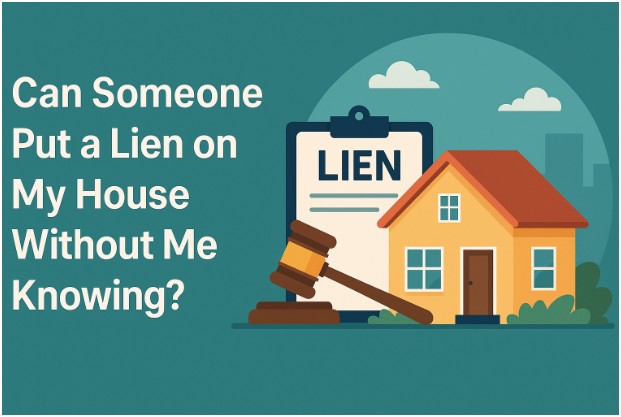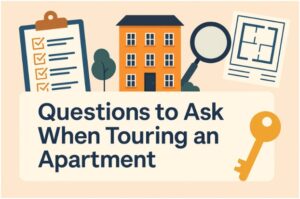If you’ve ever wondered, “can someone put a lien on my house without me knowing?” you’re not alone. The short answer is: yes, it can happen, especially with certain “involuntary” liens—but there are notice rules and public records that help you catch problems early.
What exactly is a property lien—and why does it matter?

A lien is a legal claim a creditor places against your property to secure a debt. Mortgages are voluntary liens you agree to; others (like tax, judgment, or mechanic’s liens) can be involuntary and show up even if you don’t sign anything. Until a lien is released, it can block a sale or refinance.
“Can someone put a lien on my house without me knowing?” (Yes—here’s how it happens)
It’s possible to have a lien recorded before you see a letter in the mail. Involuntary liens—such as tax liens, judgment liens, and some construction/mechanic’s liens—can be recorded at the county level and only later reach you via notice. Delayed mail, outdated addresses, or improper service can mean you don’t learn about it right away.
That said, many states require preliminary notice before a contractor or supplier files a mechanic’s lien. If a claimant skips a required notice or deadline, they may lose lien rights—rules vary by state, so local law controls.
Common lien types homeowners run into
- Tax liens (IRS/state/local): arise from unpaid taxes; agencies must provide notice, but homeowners sometimes miss it.
- Judgment liens: a creditor sues, wins, and records the judgment against your property—service requirements apply, but defects can happen.
- Mechanic’s/construction liens: contractors, subcontractors, and suppliers use these to secure payment for improvements; notice and timing rules are state-specific.
How to check if a lien is already on your house

Liens are public records. You can search:
- Your county recorder/clerk/assessor website or office (online or in person).
- A title company or closing services firm for a professional title search (paid).
- For personal-property liens that sometimes intersect with real estate deals, check UCC filings at your state’s Secretary of State.
Pro tip: Search by both your name(s) and the property’s parcel number/legal description to catch filings that might not surface on a simple address search.
What to do if you discover a lien (or suspect one)

- Identify the lien type and claimant. Read the recorded document carefully to confirm who filed it and why.
- Verify deadlines and notice. If your state required a contractor to send preliminary notice and they didn’t, talk to a real-estate or construction attorney about challenging it.
- Resolve or dispute.
- If the debt is valid, arrange payoff or a payment plan and obtain a signed lien release from the creditor. Then record the release to clear title.
- If it’s wrong or exaggerated, your attorney may pursue removal, damages, or (in some jurisdictions) claims like slander of title.
- Document everything. Keep invoices, canceled checks, change orders, and correspondence—these are crucial if you need to dispute. (General best practice supported by industry guidance.)
How likely is this to affect your credit or a future sale?
A recorded lien can cloud title and stall a sale or refinance until it’s released. Involuntary liens may also show up in credit data and hurt your financing options. The cleanest path is to address liens early—well before you list your home or apply to refinance.
How to reduce the risk of “surprise” liens
- Keep your mailing address current with tax authorities and courts; forwarding mail helps.
- Use written contracts with contractors, verify licensing, and confirm who’ll be paid (including subs). Request lien waivers with each progress payment.
- Do periodic title checks—especially after major projects or disputes and before refinancing or listing your home. A quick county search or low-cost title search can catch issues early.
Frequently Asked Questions
1) What’s the fastest way to find out if there’s a lien on my house?
Start with your county recorder/clerk website and search your name and parcel number. If online records are limited, visit in person or hire a title company to run a search and issue a report.
2) Can a contractor file a lien even if I never signed a contract?
In many states, yes—written contracts aren’t always required for lien rights. But contractors typically must follow notice and timing rules; missing those deadlines can void lien rights. Check your state’s specifics or consult counsel.
3) I paid my general contractor—why is a subcontractor lien on my title?
If a GC fails to pay subs or suppliers, they can often lien the property directly. Protect yourself by collecting conditional and unconditional lien waivers tied to each payment. State rules vary, but waivers are a standard risk-reduction tool.
4) How do I remove a lien once it’s paid?
Get a lien release (or “satisfaction”) signed by the creditor and record it with the county to clear the title. Keep proof of payment and the recorded release for your records.
Bottom line: stay proactive to avoid surprises
So—can someone put a lien on my house without me knowing? It’s possible, particularly with tax, judgment, or construction liens, but you’re not powerless.
Keep addresses current, use solid paperwork with contractors, and run quick public-record checks before major transactions.
If a lien appears, verify its validity, leverage state notice rules, and record a proper release once resolved to restore clean title










